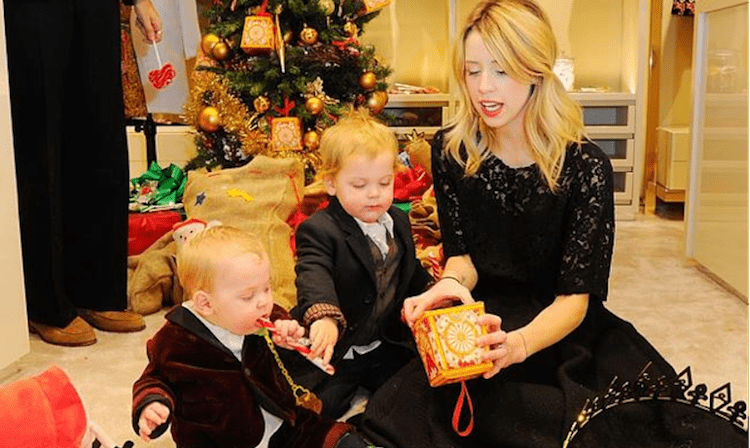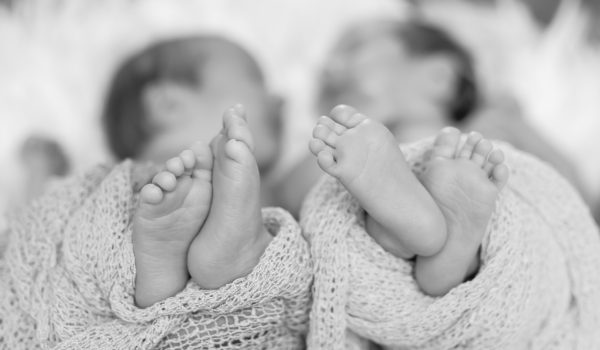It’s a conversation no parent wants to have. But sadly, some parents leave this world far too soon, with young children left behind.
Peaches Geldof was just 25 and mum to two beautiful boys, Astala, 23 months, and Phaedra, just 11 months, who was reportedly at her side when she died on Monday April 7. Peaches also leaves behind her husband, Thomas Cohen, whom she married in September, 2012. So how do you explain to young children their mum won’t be coming home? According to Jo Lamble, The Carousel’s psychologist, the discussion about death depends on the child’s age and their personality. “It also depends on any faith you may have, for example, whether you want to say that they’ve gone to heaven or not,” explains Jo. “Some people like to talk to very young children about heaven even if they’re not religious, because it’s a nice concept. Basically, you talk in plain speak using age appropriate language.”
Some simple ways to explain death may be:
- “Mummy was very sick. The doctors couldn’t help her anymore and so sadly, she died. She’s not in any pain now.”
- “Grandma hasn’t been well for a while. Her heart stopped working because she was very old and sadly, she died. She’s not in any pain now.”
- “Fido sadly got cancer, which made him very sick. The medicine the Vet gave him worked for a while, but he got too sick and so he died. He’s not in any pain now.”
Don’t explain death like this:
- “Be very careful not to say things like, ‘she died peacefully in her sleep’. Children may then become afraid that you or they might die in their sleep.”
- “Don’t use the term ‘passed away’. They won’t understand what this means.”
Questions children may ask you…
It’s really important that you ask them if they have any questions, and that you answer them, advises Jo. “Little kids often ask if you will die, or if they will die. Again, we need to tell them the truth: ‘We all die one day, but not for a very, very long time.’ They also commonly ask what happens after you die. Some people talk about heaven at this point, or you could say that while their body no longer works, their spirit lives on in our hearts and minds. It’s a very hard concept for children to understand and it’s ok to admit that it’s hard for us to understand what happens.”
Keep a watchful eye on little ones
Jo says after the conversation, it’s a good idea to keep a close eye on them. “See if there are any changes in their behaviour that shows that they may be upset or anxious,” she suggests. “If they are upset, reassure them that that’s ok. Don’t be afraid to show your grief. Tell them that you are really sad because you miss the person and that you loved them so much. Keep talking about the person who’s gone because that helps everyone grieve. Say things like: ‘Mummy would have loved this’, or ‘Grandma would have been so proud of you – you know how much she loved to see you dance.’ It’s lovely to make a memory book or a memory box to celebrate the life of the person who has died. Fill the book or box with pictures and stories and fun tokens. Bring it out regularly and look at it together. The tears and laughter help to keep the person very much in your hearts and minds.”
Do you have a Will?
Here’s what you need to know…
Alarming fact: Many parents do not have a Will drawn up. But it’s paramount you do everything (legal) you can to ensure your children are cared for in the event that you pass away. Luke Scandrett is a lawyer for Emil Ford Lawyers and answers all of those tricky questions…
What is a Will?
“A Will is a legal document in which a person describes how they want their assets and other personal matters to be dealt with after they die. The Will firstly appoints ‘Executors’ who are responsible for carrying out the terms of the Will. The Will will then describe how the deceased person’s assets are to be distributed and may give other specific instructions. For example, it might describe what type of funeral the deceased person desires or appoint certain people to be guardian of their children until they are adults. The person making the Will has a great deal of discretion in distributing their assets – they can be given to just one person or to multiple people and organisations.”
“A validly made Will is legally binding unless it is changed by a Court order. Such a Court order is difficult and expensive to obtain. The most common way a Will is changed is after a family provision claim is brought by someone who shows the Court that the Will does not adequately provide for them.”
Why is it so important for parents to have a Will?
“If a person dies without a Will, their estate will be subject to the ‘rules of intestacy’. These are a set of standard rules which set out in what order eligible relatives will inherit the estate. Generally speaking, the order of preference to inherit the whole estate is the spouse, or if there is no spouse, then children, then parents, then siblings, then grandparents and then aunts and uncles. These general rules are subject to the deceased person’s specific circumstances – for example, the situation will be more complex if there are multiple former spouses.”
“The problem with intestacy is that it is inflexible and may not reflect the deceased person’s actual wishes for the distribution of their estate. For example, a parent may leave their estate to their former spouse when they would have preferred it to be left directly to their children or for part of it to be given to a charitable organisation. It may also lead to disputes within the family if different people are unhappy about the result produced by the rules of intestacy. Finally, the rules of intestacy do not cover the appointment of guardians for the deceased person’s children, which may result in the children being left in the care of someone the parent did not intend or desire to have in that role.”
What are some issues parents need to consider when writing a Will?
“When making their Will, parents should consider who will care for their children if both they and the other parent should die. Parents can appoint guardians in their Will to look after their children until they turn 18. It should be noted that although appointing a guardian in a Will may help avoid disputes between other family members by making the parent’s intentions clear, it is not binding. The Family Court has an overriding power to appoint a different guardian or remove a guardian of a child where it considers this to be in the child’s best interests.”
“Guardians will often also be given the power to use the estate’s assets to pay for the costs of bringing up the children, including education and medical costs. The guardians will only be able to use the estate’s assets if it is for the benefit of the children. It is often prudent to appoint someone who is not the guardian to be in charge of distributing the estate’s assets for the children’s benefit – this will avoid a conflict of interest if the guardian is tempted to use the estate’s assets for their own needs.
“Parents should consider if they want to distribute their estate assets directly to their spouse/children, or if they wish to establish special trusts containing their assets. A trust is a legal structure which carries certain advantages and disadvantages. Whether or not they are appropriate to use will depend on the quantity and type of assets the parents are leaving behind.”
“It is recommended that all people making a Will obtain legal advice and assistance in drafting it. This will avoid any inconsistencies or ambiguity being left in the Will and will help ensure contingencies for all possible situations are provided for – for example, what should happen if both a person’s spouse and children should die before them. This should avoid the possibility of expensive litigation being carried out after the person dies if other people dispute the contents of the Will.”
Divorced parents: Should you leave your money to your ex-partner to raise your child? What if he or she remarries, is the new partner entitled to the money you left for your child?
“This will depend on the individual person’s circumstances and must be considered when making a Will. Generally speaking, it is not advisable for a person to seek to ‘rule from the grave’ and try to control in detail how their assets can be used after they die. In some cases, a person will leave their estate to their former spouse and trust that they will ensure their children are cared for in the future, no matter what the circumstances are. If there is a real concern that their former spouse may misuse the money, the money can be left on trust for the person’s children and someone else can be left in control of the money to use it for the children’s benefit. This may run the risk of the former spouse bringing a family provision claim however – the potential risk of this will need to be considered when the Will is drafted.”
For more information, visit Emil Ford Lawyers or check out the Wills page at Law Path, which offers affordable, simple to use legal products and services including Will kits from $49.
Have you drawn up a Will? What were some of the suprising things you discovered? How have you handled telling a young child a loved one has died? Share your advice and insights below…









